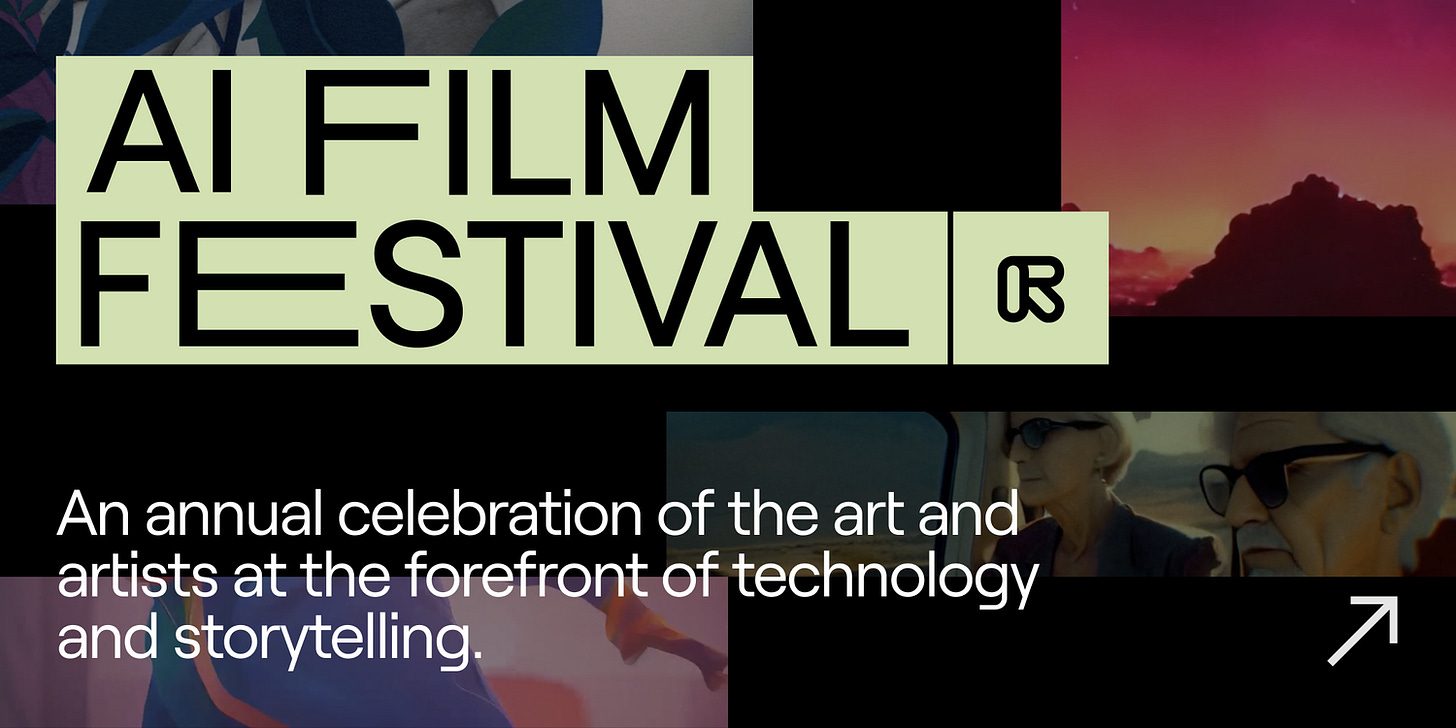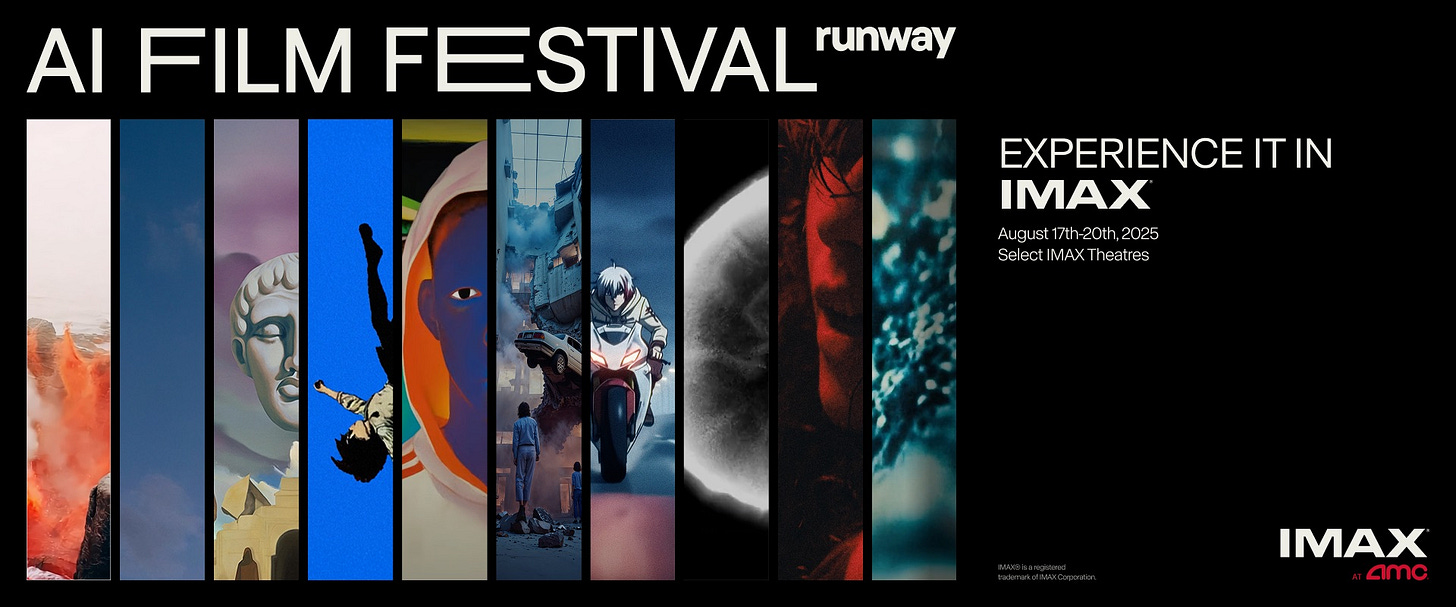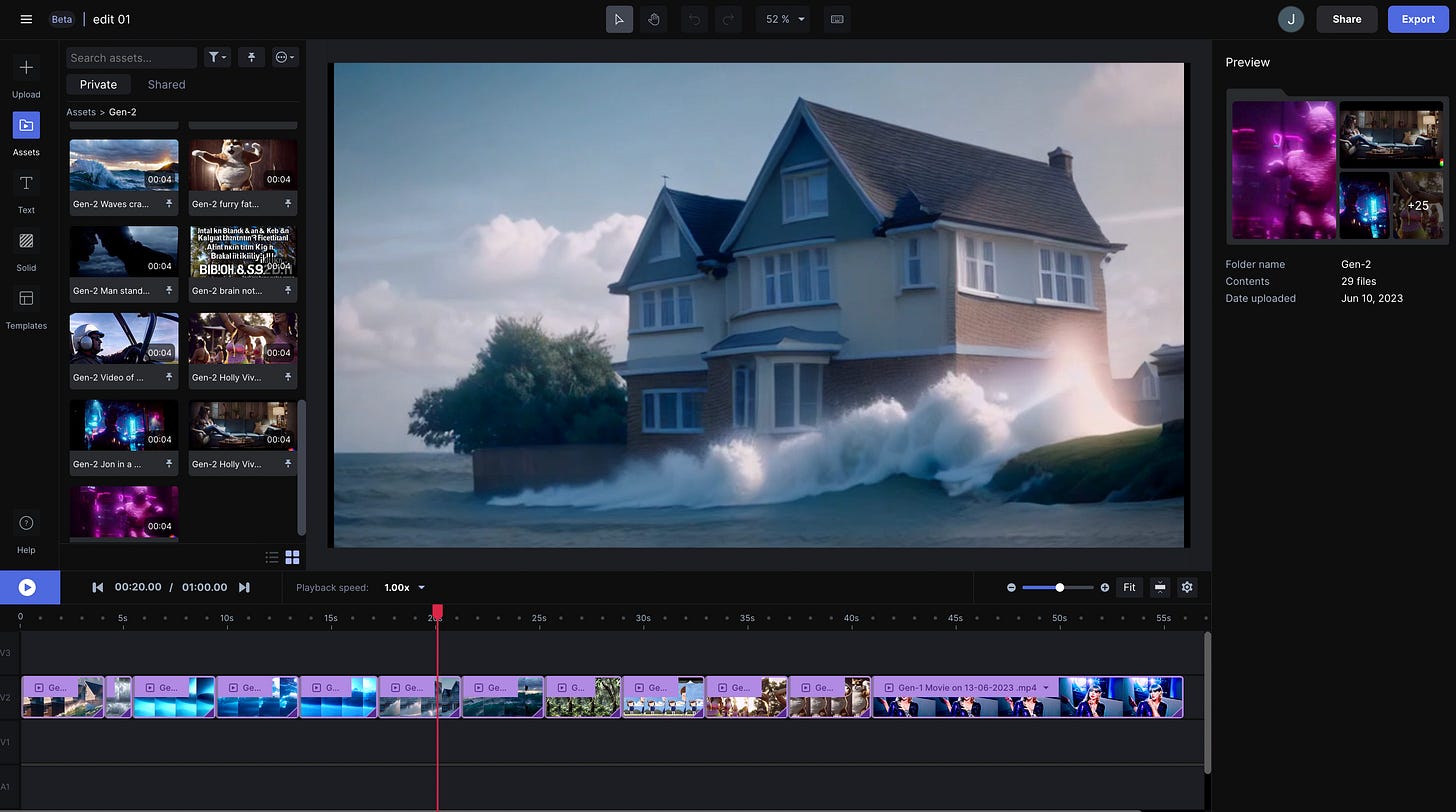The IMAX AI Film Festival Is Here - And That Should Worry You
IMAX is about to do something no one expected from the world’s most premium theatrical format: screen a film festival made up entirely of AI-generated short films.
IMAX is about to do something no one expected from a company known for showcasing the biggest and most impressive filmmaking on the planet. They’re launching a film festival entirely made up of AI-generated short films. Not AI-assisted. Fully AI-generated. That alone should tell you where things are headed in Hollywood. AI isn’t some future tool everyone’s cautiously considering. It’s already here, and it’s being used in ways that are getting more invasive to the arts by the day.
If you’ve been paying attention over the last few months, this isn’t exactly coming out of nowhere. Every major studio is experimenting with AI, whether they’re admitting it publicly or not. The tool most of them are playing with is Runway, which has quickly become the go-to platform for generative video content. Disney is testing it. Netflix used it to create a full sequence in one of their new shows. Lionsgate and AMC have already signed official deals with Runway. At this point, it’s not a stretch to assume that just about every major player is exploring AI’s potential, even if they’re keeping it quiet for now. If they haven’t adopted it already, they’re at least figuring out how to do it in a way that doesn’t cause immediate backlash.
I get that there are some practical advantages. James Cameron recently pointed out that studios can’t keep making three or four hundred million dollar movies that may not even make their money back. Both Superman and The Fantastic Four are struggling to profit right now - who would have guessed that would be the case 5 years ago? That kind of spending just isn’t sustainable anymore. And if the financial model collapses, we don’t get more movies. So I do understand the appeal of tools that can cut down on time and costs. If a CGI sequence used to take six hours and AI can do it in six minutes, that’s a massive shift. It’s hard not to look at that and think about all the long hours and repetitive work that could be streamlined. As long as there’s still a human being involved, shaping the creative direction and making decisions, then maybe that’s just another step in the evolution of how stories are told. Humanity has gone from carving words into stone to handwriting with fountain pens to typewriters to word processors. Maybe this is just the next version of the natural progression of technology in filmmaking.
But this IMAX film festival feels like a turning point, and not in a good way. These are short films created entirely by AI. Maybe someone wrote the script, but maybe even that was generated. The animation, the audio, the sound effects, the pacing, the whole thing is driven by algorithms. And to me, that’s where the line gets crossed. Because these AI tools aren’t creating things from thin air. They’re trained on existing work. They’re scraping from artists, filmmakers, musicians, and writers. So what you end up with isn’t an original creation. It’s a mish-mash of other people’s work, repackaged through a model that was trained on content it didn’t ask permission to use in the first place. That’s not innovation. That’s just advanced plagiarism.

And this is where I see the slippery slope beginning. I know people don’t like that phrase, but it’s the truth. Once the industry sees how much AI can save them, how long until they take it further? If the early experiments with visual effects are successful, what’s stopping them from moving on to writers or actors or composers? The second it becomes cheaper to generate something than to pay a person to make it, the logic of capitalism kicks in. That’s not a dystopian conspiracy theory. That’s just the system doing what it always does.
At some point, if this keeps going, we’re going to end up in a place where everything we watch is made by machines trained on the art of people who never gave their consent. And the people promoting those projects might not be real either. They’ll be AI influencers pushing AI content to an audience that doesn’t know the difference. If that’s the future of movies, count me out. And honestly, if it gets that far, you probably won’t even see my face or my writing anymore. It’ll just be an AI-generated version of me talking about AI-generated movies in an endless loop designed to keep feeding the machine. Fun, right!




I've thought about this and I think there some different ways this could go.
- The culture rejects it and the industry makes a huge misstep as it falls flat with the public.
My reason here is that it is obvious that the public dislikes these tools when they can sense them. I personally was interested in drawing, so I looked into image generation and learned a lot about it. I completely lost interest in it though when I shared some of the stuff I was working on with friends and they didn't care about it and weren't impressed by any of it. Most people don't want more generated content and I think the industry knows this.
- The culture reluctantly accepts it because the only source for new entertainment uses it.
Perhaps in the lack of viable alternatives people will just accept it because consuming low quality entertainment is better than not consuming any entertainment. If this happens, then I think the quality of movies, shows, and the like will be reduced to an imitation of the past with a downward trend in quality as the generative tools copy and paste art and then eventually begin to copy and paste their own generations.
- The industry embraces these tools, then struggles against the huge influx of competition from the wide availability of these tools.
If you reduce your output quality to that of a generative tool, then anyone with access to the tool is as "talented" as you are. Perhaps major movie industries find themselves in competition with teams the size of small YouTube channels making entertainment of equal quality.
I don't think that these generative tools are going to be a pathway towards greater artistry, but the financial temptation of being able to pay close to nothing for labor and get "good enough" results is an obvious attractor for large studios who care more about output than artistry.
At the end you're describing "Dead Internet Theory", which posits that a considerable amount of Internet content and interaction is bots interacting with other bots. It's scary to think of our resources (including cultural resources) could be used to create a feedback loop that does nothing for us (real, living humans).